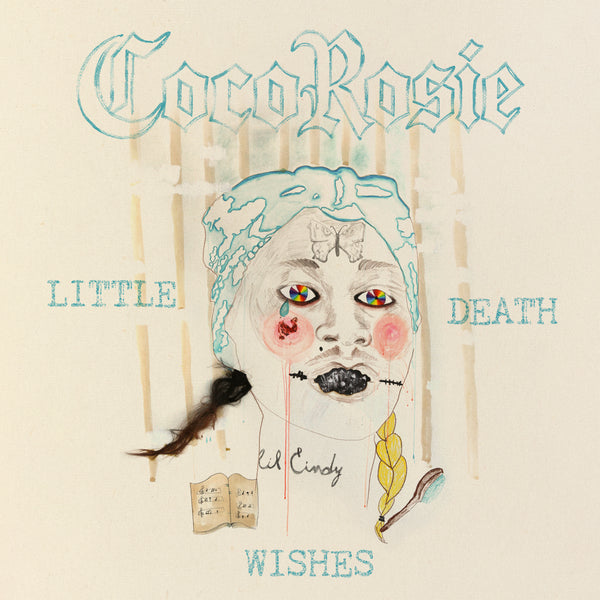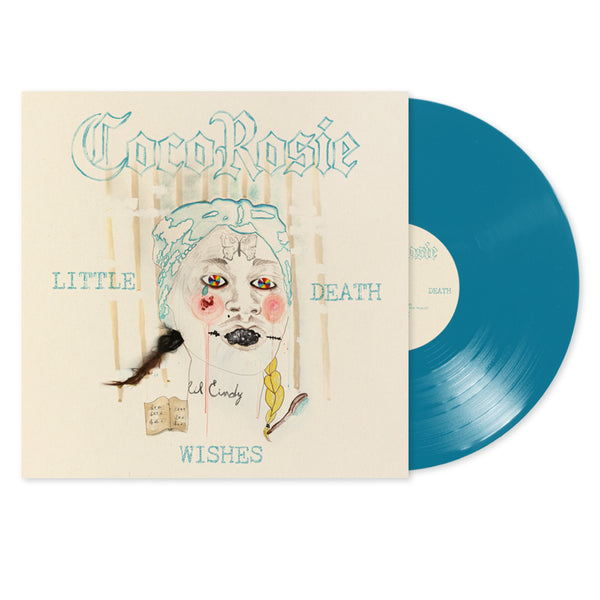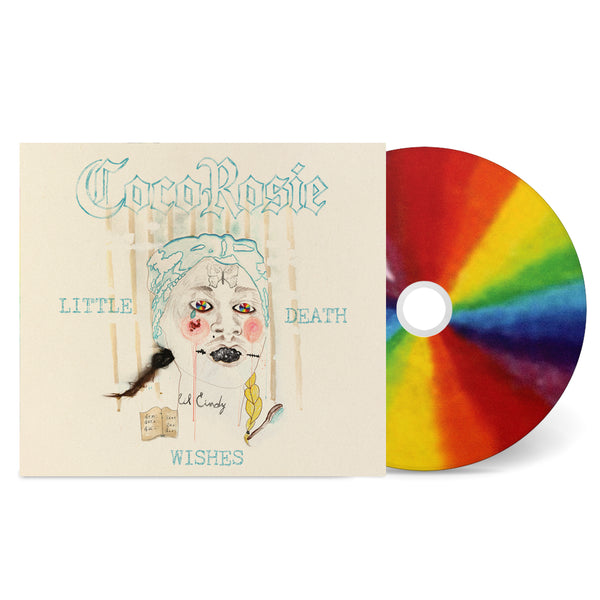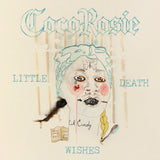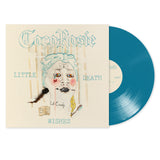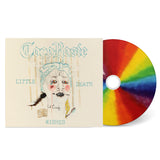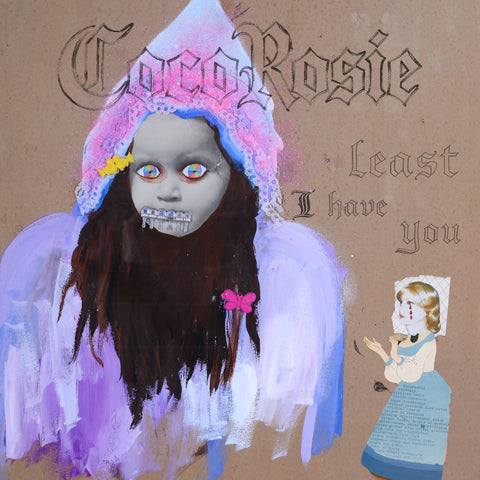$ 24.00 USD
SOLD OUT
1. Wait For Me
2. Cut Stitch Scar
3. Yesterday
4. Luckless
5. Paper Boat
6. It Ain't Easy
7. Nothing But Garbage
8. Least I Have You
9. Girl In Town (feat. Chance the Rapper)
10. No Need For Money
11. Pushing Daisies
12. Unbroken
Credits
Written and performed by CocoRosie
Bianca Casady: Vocals, piano, drum machine, keyboard
Sierra Casady: Vocals, piano, drum machine, keyboard
Gael Rakotondrabe: Piano - additional, keyboard - additional
Recorded and engineered by Manuel Calderon, and Félix Remy
Mixed by Nico Kalwill
Mastered by Chris Gheringer at Sterling Sound
For just over twenty years, Bianca and Sierra Casady have transmuted the love, hardship, and ecstasy of sisterhood into some of the most daring, dangerous, and wildly original music our increasingly sanitized culture has known. CocoRosie has been a project consistently at the musical vanguard, influencing countless musicians while inspiring and creating refuge for the “criminal queers” of the world. Above all, CocoRosie has been a conduit for irrepressible artistic self realization.
Little Death Wishes is as open and tenderhearted as anything they’ve ever created. The songs tell a kaleidoscopic story of the generational hardship of women and the shattered realities of their lives, the precarious and precious nature of being human, of being done wrong by love, and a final wish to be unbroken. It boils everything CocoRosie down to its most brutal essence: turning pain into knowledge, sisterhood into polemic, trash into treasure, and recalcifying kitsch and cliché into fresh truths.
Through a process of unbridled experimentation, and a welcoming of happy accidents, which the musicians relate to more as magic, CocoRosie crafts every aspect of their music from song writing to the complex and layered electronic production. Often starting with beatmaking, using whatever is at hand, cutting scraps into patterns until it makes them dance. The melodies are simple and to the point, frequently generated from whatever children’s keyboard is lying about. At this stage in their co-created process, they need little to make their heartfelt, grimy songs.
During their experimental-play sessions in making this record, often in a closet sized, bedroom-studio, they challenged their habituated modes and exchanged musical roles. Under Bianca’s direction, Sierra stepped into her sister’s beat-making post, chopping spoons and typewriters into sixteenths, making crusty high hats collaged with swinging funk samples, then straightening them back to make them fit. Unlike previous records, a good bulk of the album’s lyrics come from Sierra—we hear a less cerebral, more intuitive side of CocoRosie because of it. “Wait for me,” she sings in the song of the same name, calling out from a place below the depths of her being.
Little Death Wishes exists in its own musical lexicon. It is both primordial and tawdry, a rich bricolage of dusted-over pop culture signifiers that the sisters contort into their own sense of temporality. Contributing to the avant garde, yet unbeholden to contemporary trends, CocoRosie collects musical detritus from other times, which they fashion into their own baroque, theatricalized creations. With the sisters’ hands deep in every layer of their music, each song on Little Death Wishes feels transportative and transformative.
Singing on a soul record from the 70’s they dreamt of, “No Need For Money (when you’re dead)”, a statement they hold close, speaks of an anti-materialistic, spiritual view which simultaneously critiques capitalism and greed as an egregiously destructive force in this world. Throughout the album, the politics are quilted into the tragic love story of the lyrics—in a crude style patchwork of garish stitches and a little glitter to seduce the listener into a world that gratingly goes against the status-quo. Consistent with their approach over their past 7 records and spanning two decades (released on legendary labels like Touch & Go and Sub Pop), they hold closely the voice of dissent and their role to stir things up and challenge the hypocrisy of our times with “haunted-house” reflections both satirical and deeply personal.
“CocoRosie has been the center of our lives for such a long time now,” says Bianca. In those years, the sisters have been infantilized and revered, fetishized and mirrored, misogynized and adored; at times willfully misunderstood by the press—which has failed to reduce the group into mere perverse whimsy. Despite it all, CocoRosie has continuously pursued the bravest and boldest routes, uplifting the rawest, unveiled, and most tender strands of humanity and nudging us towards the light.


